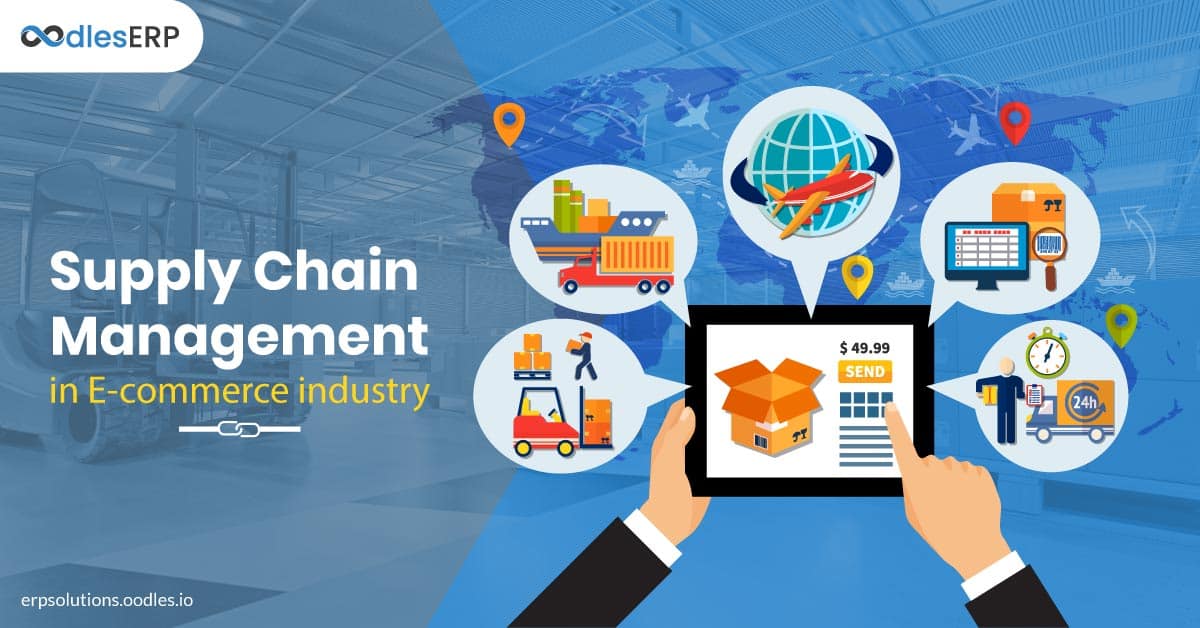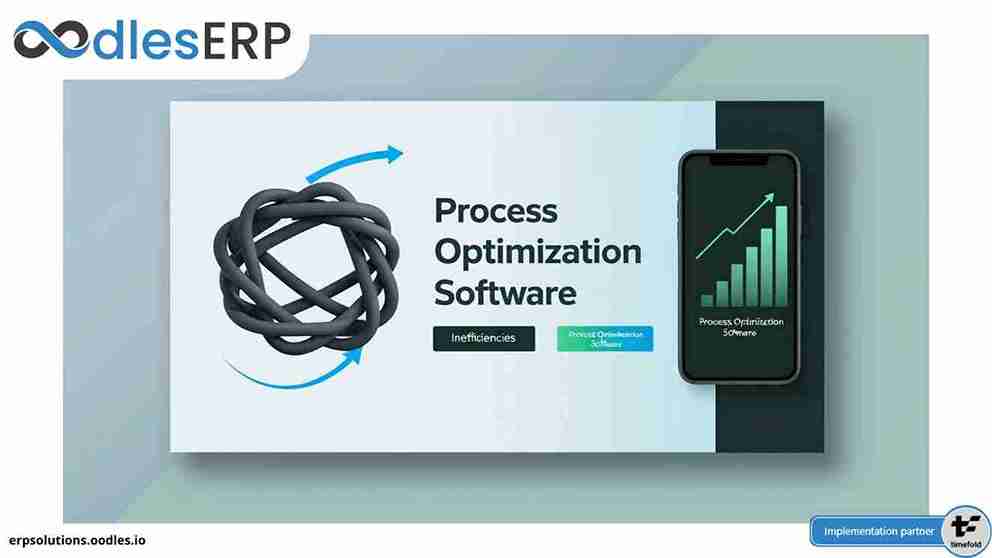Supply Chain Management in eCommerce
Business efficiency at all operational levels is critical for the success of e-commerce. Supply chain management is an essential component of e-commerce. Supply chain management in e-commerce focuses on the procurement of raw materials, manufacturing, and distribution of the right product at the right time. It includes managing supply and demand, warehousing, inventory tracking, order entry, order management, distribution, and delivery to the customer.
Supply Chain and Logistics Process In The eCommerce Industry
The e-commerce industry is not just limited to setting up a website and selling products online. It includes product configuration, suitable infrastructure, logistics, secured payment gateway, and supply chain management. An efficient supply chain accelerates e-commerce processes to meet customers’ expectations.


Vital components forming the Supply Chain and Logistics processes of the eCommerce Industry:
Inventory Management: Inventory is a critical component of supply chain management. According to the traditional inventory model, businesses used their own warehouses to sell the products directly to customers. But, now as per the risk-pooling strategy, e-commerce businesses do not hold their own inventory and rather outsource their inventory to a larger wholesaler. It enables e-commerce businesses to reduce the risk of keeping their own inventory.
Several businesses are adopting the drop-shipping model for inventory. According to this model, a store does not hold the product it sells on the website, rather it purchases the product from a third-party and ships it to the customer.
Reverse Logistics: E-commerce businesses also have an SCM structure that entails reverse logistics. Reverse logistics is defined as the planning and execution of the movement of goods from the point of consumption to the point of origin. Almost, all e-commerce businesses provide the facility of exchange and returns. This increases the need for logistics.
Also, Read Odoo Community vs Odoo Enterprise: Making The Right Choice
Optimized Inventory Management, a Must-have for Supply Chain Management in eCommerce
Product Availability and Service Level:
The success of an e-commerce website depends on customer satisfaction. If customers cannot buy the right product at the right time, they will immediately switch to other e-commerce stores. A service level of 95% of products is ideal for e-commerce success. The slow delivery process increases the risk of losing potential customers and can even cause a negative impact on the reputation of the business.
From inventory to logistics and purchase to supplier management, processes should be well-coordinated and optimized. Even if one link of the supply chain doesn’t function well the entire supply chain management will fail, resulting in loss of revenue.
Customer Reviews:
The reputation of an e-commerce business is measured by customer reviews and experiences. It is a critical factor that impacts the growth of an online store. Price comparison search engines are the first point of contact for online shoppers. The search engine ranking is also done based on customer reviews. To receive good reviews, the delivery of the right product at the right time is necessary.
Platforms like Amazon and eBay use internal key figures to assess the credibility of distributors. These platforms have supply chain key performance indicator (KPI) targets. If the KPI is below certain minimum values, then penalties in the form of account suspension can be imposed.
Also, Read SaaS ERP Solutions For Logistics and Supply Chain Management
Excess Inventory Increases Costs:
E-commerce businesses are expanding rapidly due to which they reach their limit on inventory management. With the growth in business, product portfolio, supplier base and surge in returns also grow at a rapid pace.
Increasing inventory drastically is common mistake e-commerce businesses make to meet the demands of customers. Inventory represents a significant portion of the total investment of e-commerce businesses. Excess inventory can mutate into obsolete stock (dead capital) which can lead to increased costs.
Supply Chain Management in eCommerce
E-commerce is about selling and buying goods over the internet and the movement of goods between two parties. The dispatch of the right quantity of products at the right time to the right person is essential and hence efficient supply chain is required. A quick, uninterrupted, and secure supply chain is a critical aspect of the e-commerce business. Efficient supply chain management in e-commerce can reduce costs and enhance cash utilization. When a customer purchases a product from an e-commerce website, he/she wants the product in a short time. New e-commerce websites are evolving every day. But, customers prefer only those sites that have an efficient supply chain to deliver the right products at the right time.
Read More: Transforming Supply Chain and Logistics with Blockchain
The Key Benefits of SCM In E-commerce include:
Reduced Costs: SCM in e-commerce removes various stages of distribution, retailers, and outlets. The elimination of these stages reduces the overall cost of products. The reduced costs give customers a direct advantage when compared to the cost of products available in physical stores.
Trade Globally: SCM enables e-commerce businesses to trade globally. An efficient SCM enables e-commerce businesses to import raw materials from anywhere and export their finished product to any country easily.
Enhanced Customer Satisfaction: Customer satisfaction is an important factor for the success of an e-commerce business. With efficient supply chain management in e-commerce, enterprises can easily track demand, the time suppliers will require to fulfill the orders and order goods from suppliers to keep the inventories replenished.
Avail Supply Chain Benefits in eCommerce with Oodles
We provide supply chain software development services that enable e-commerce businesses to track and manage their inventory in real time. With our SCM services, e-commerce businesses can easily manage orders and payments. We have experience in enabling the tracking and management of supply chain activities. Our supply chain software development services include the development of order management systems, Electronic Data Interchange (EDI), and Inventory Management systems.
We empower e-commerce businesses with fully functional systems and e-commerce modules. Our solutions are tailored to fulfill your unique requirements. We provide e-commerce development services for industry verticals like real estate, healthcare, retail, and financial services. Our dedicated ERP team provides end-to-end inventory and shipment management solutions like inventory forecasting, barcoding, ordering, and picking.
Concluding Thoughts
An efficient supply chain is critical for e-commerce businesses. It reduces production costs and shortens demand response time. E-commerce development solutions use technologies like POS, file transfer, video conferencing, and electronic mail to improve the efficiency of logistics and supply chain.









